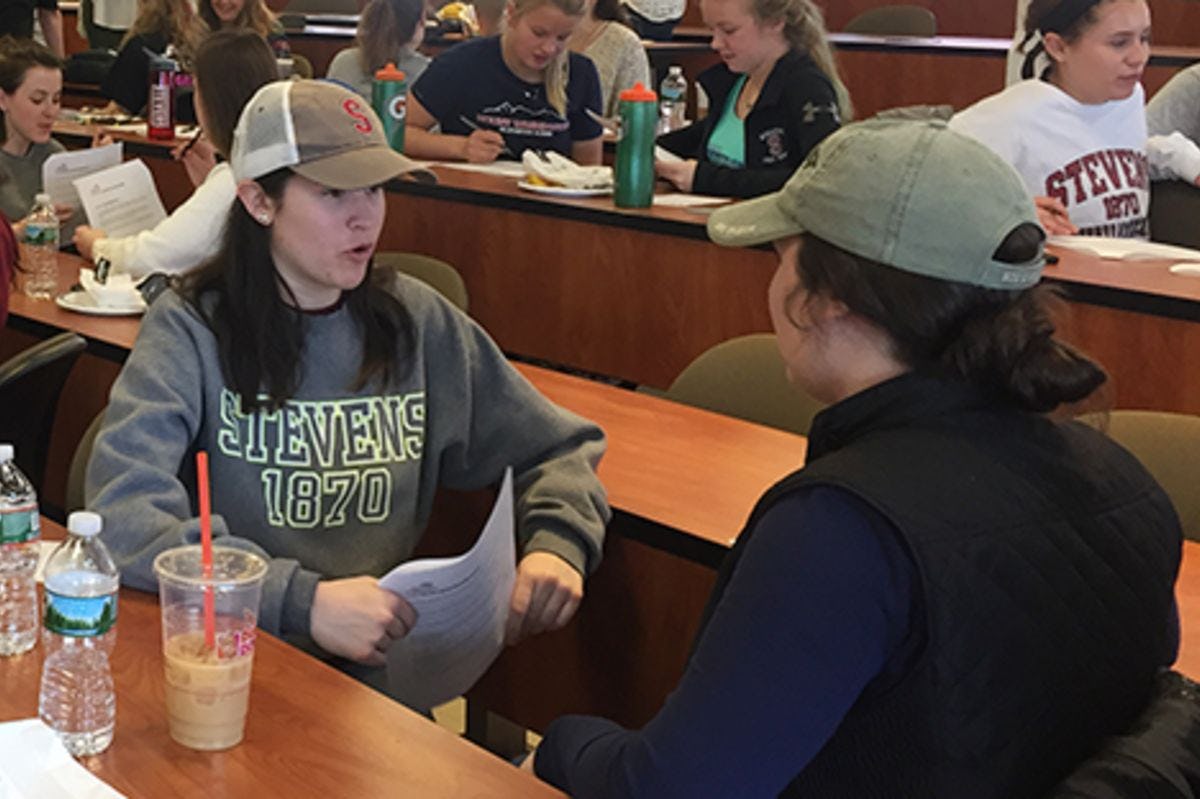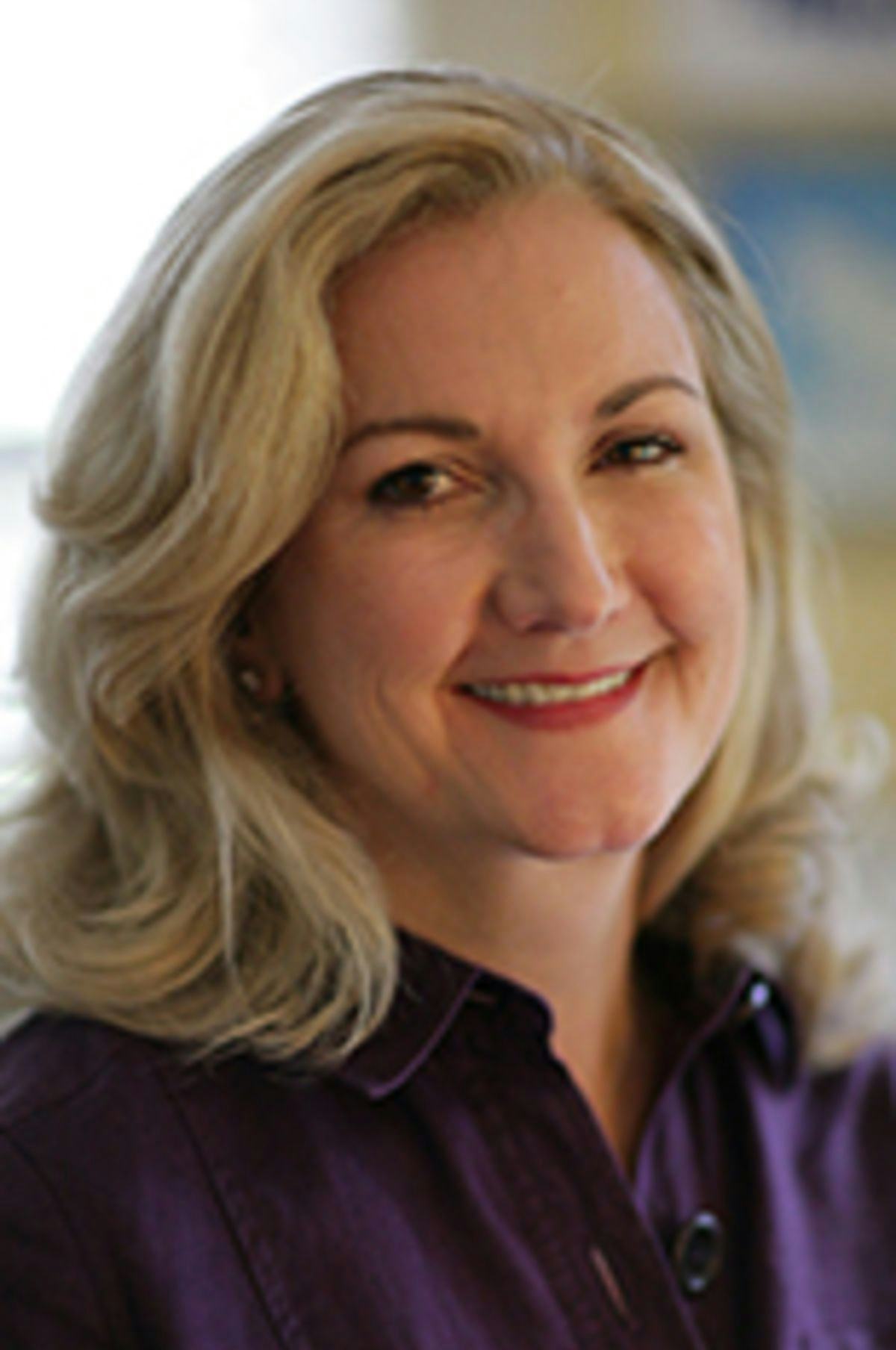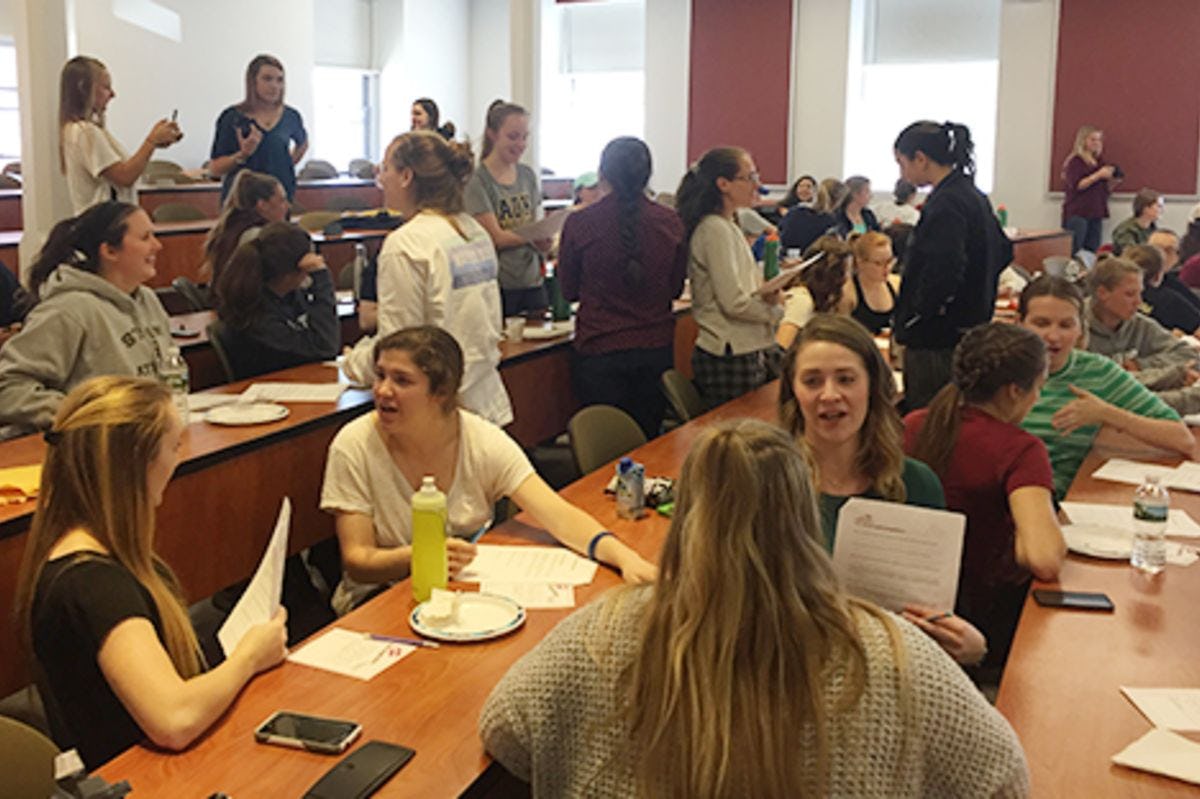Putting Paid to Wage Gap: Stevens Seniors Bring Lessons in Negotiation to Campus
Students Create Workshop to Inspire Confidence in Women Seeking Salary Equality
Jess White is the kind of skilled student that companies fight over — and, in fact, that’s exactly how her job search played out.
The Stevens Institute of Technology senior will graduate this spring with a bachelor’s degree in Engineering Management before going to work as a process engineer at Kerry Ingredients. But before accepting the position, she entertained offers from four companies, eventually negotiating the best outcome with Kerry.
Her experience, though, isn’t typical: Many women in scientific or technical positions lack the confidence or know-how to negotiate better salaries for themselves, and wind up earning less over their careers than male counterparts with similar experience.
That’s what brought White to a salary negotiation workshop, hosted by a team of students in the university’s School of Business in conjunction with the consulting and coaching firm She Negotiates.
“We need more women in engineering, but at the same time, we have work harder to close that wage gap,” she said. “Being able to attend a seminar like this and meet other women who have gone through some of these experiences is really beneficial.”
Solving issues of salary — and awareness
The team behind the workshop — seniors Mariel Haubrich, Samantha Hetherington, Sydney Huber, Marielle Jankowski, Nolie Prouty and Taylor Welch — was aiming for just such a reaction. Hetherington said when the team surveyed students in the fall, many were unaware of the wage gap between men and women, and most didn’t know how to have the conversation with a hiring manager about compensation.
The team decided to explore these issues through a workshop, an idea they said was nurtured by the project’s advisor, Professor CV Harquail, who connected them to Jamie Lee, a negotiation consultant at She Negotiates.
The event — co-sponsored by the Stevens Panhellenic Council, Women in Business, the Office of Diversity and Inclusion, Women in Engineering, and Women’s Programs — attracted more than 50 students, who took part in a number of improv and role playing exercises to get them to think creatively about negotiating and encourage confidence in such situations.
The main goal of the event was to build confidence, Prouty said, which goes beyond the number on a paycheck.
“The workshop is about learning to be able to have confidence in yourself, to be respected in the workplace,” Prouty said. “It’s designed to help you think, ‘I am an important person to this business, and I deserve to be valued in that way.’”
The concepts demonstrated in the workshop have already created impact for women on the team. Welch is interviewing with several firms, but has already demonstrated to one company that’s she’s willing to drive a hard bargain for the unique skills she’d bring from her School of Business education.
“I told them, I think the experience and time and effort I’ve put in to Stevens is something that makes me worth a little bit more,” she said. “I don’t think I would have felt confident enough to say that during my interview without the experience of going to the workshop in October.”
Because Stevens business students are immersed in technology, data and analytics, many go on to work in the tech sector, which is why this team’s project is so important, Dr. Harquail said.
“The window for employees to have an impact through negotiation — for salary, a promotion, more resources or strategic initiatives — is more open in tech companies, because many haven’t yet codified all their pay scales, or started centrally managing salaries through their HR departments,” she said. “So a lot of decisions are left up to the discretion of line managers. Without benchmarks to guide them, there’s more room for things like unconscious racism and sexism to become factors.”
'You maybe missed an opportunity'
It’s an important time for students to hear that message, Welch said.
“Before we started this project, my focus was just on getting a job, and I get an offer, I’m just excited to have a job, whatever the salary may be,” she said. “But three to six months after graduation, you realize that you maybe missed an opportunity, and now your salary is what it is.”
That was a warning Lee, of She Negotiates, emphasized in her presentation, as she encouraged the women to leverage salary research tools like PayScale and Glassdoor, but also their own “superpowers,” like an ability to gain trust or to build consensus for unpopular decisions.
The team is now surveying participants in hopes of having additional data to present at the May 3 Innovation Expo. That data will also be shared with She Negotiates; the Stevens team hopes its findings can create a lasting relationship between the university and the consulting company that benefits future generations of students.
“We hope the data tell us if this is can help to close the wage gap — is the issue just that people don’t feel comfortable negotiating their salary?” Hetherington said.
Anecdotally, the team already feels it’s created impact. The workshop, Welch said, “touched a lot of students directly, and we hope that it can be carried on by teams, if not Stevens itself, in the future.”
For students like White, the engineering management senior, the benefits of the workshop would seem worth holding such events in the future.
“It was an important reminder in the value of being confident in yourself and your work ethic, and being confident enough to ask for what you’re worth,” she said.





